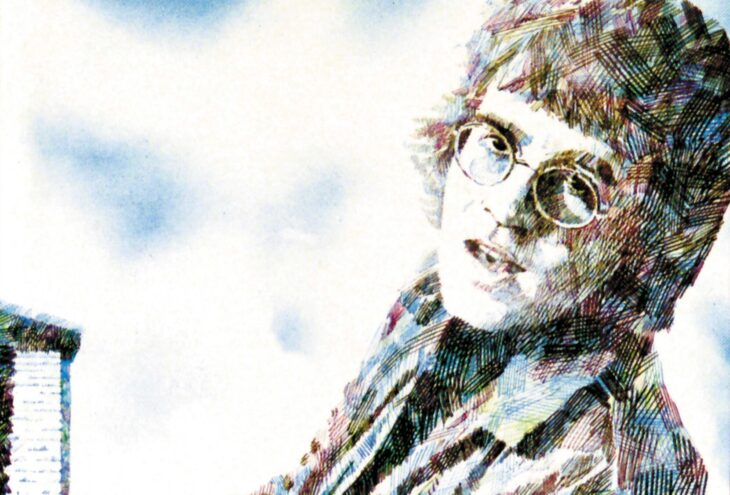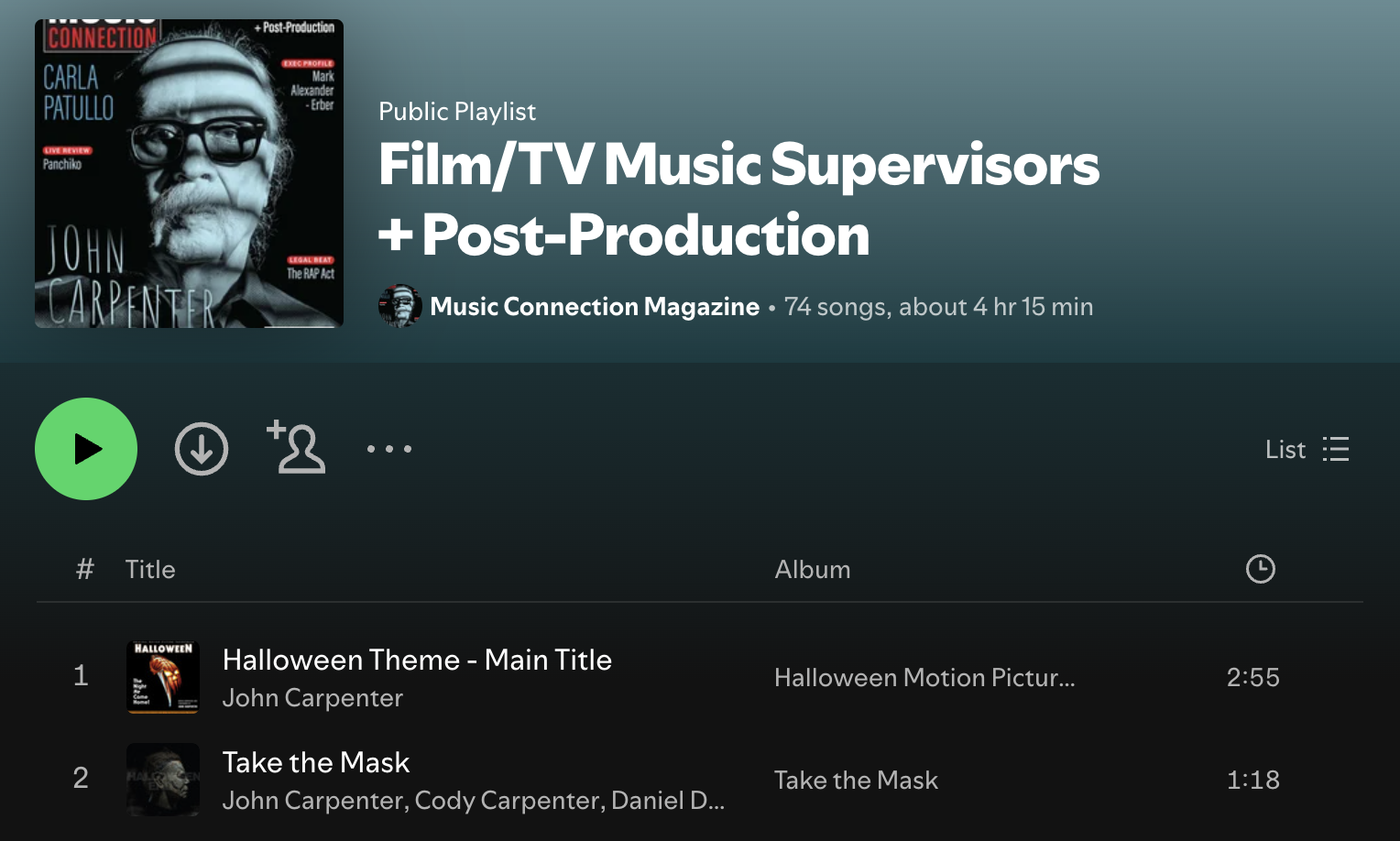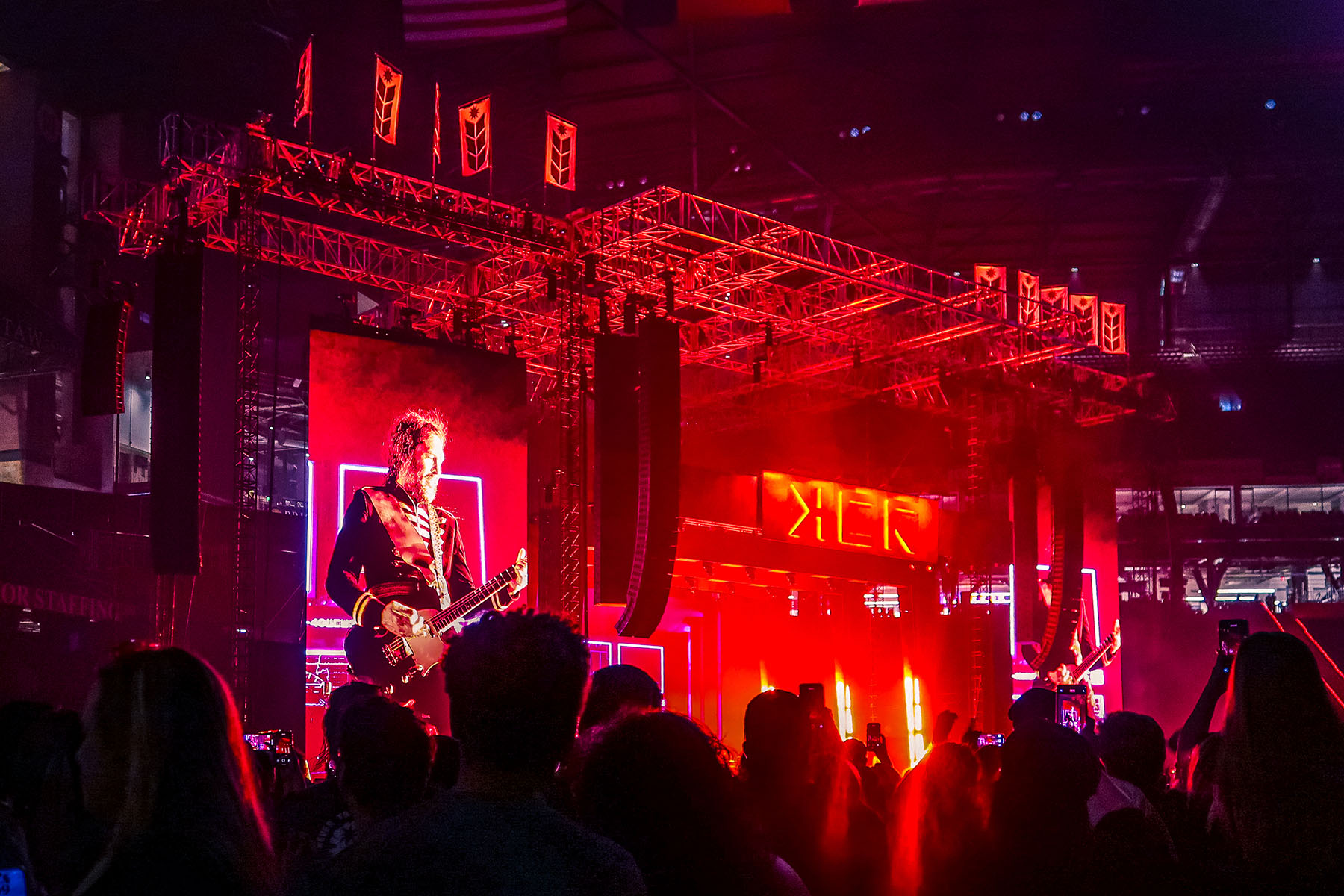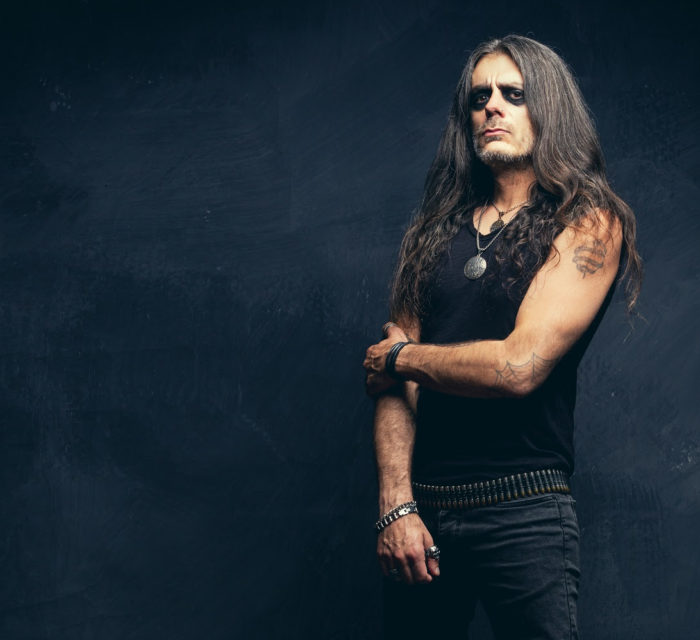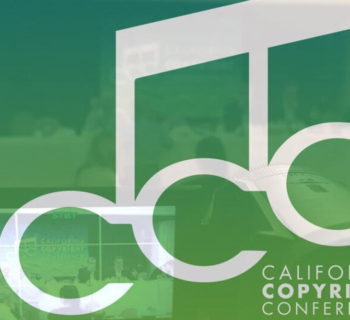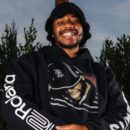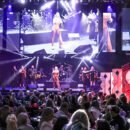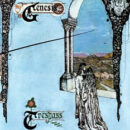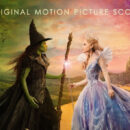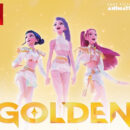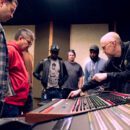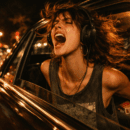I was an avid reader of Melody Maker since 1964. I first became aware of Elton John’s Empty Sky DJM record label first LP in June of 1969. I ordered it as an English import from Lewin Record Paradise on Hollywood Blvd.
His piano playing, voice and some numbers were impressive but the album only hinted at his greatness. [It was later released in 1975 on the MCA Records label in the US].
The next year in Melody Maker there was a review from deputy editor writer Richard Williams about Elton’s second long player simply titled Elton John in the April 25, 1970 issue.
The astute scribe wrote, “It’s nice to see Cat Stevens and Elton John providing the British answer to Neil Young, and Van Morrison. And make no mistake Elton is up in that class.
“This is his second album, and is considerably meatier and more substantial than the first. He and Bernie Taupin craft superb songs, strong in every department (words, music, moods), and Paul Buckmaster's sumptuous arrangements. Gus Dudgeon's brilliant production lifts the result almost beyond words. If Elton has a fault, it's that he sometimes sounds rather too much like Feliciano in the way he turns and ornaments phrases, but once you get past that it's beauty all the way.
“A truly great record.”
I really dug Jose Feliciano’s vocal delivery on his hit RCA recordings besides the dazzling arrangements and re-workings of “Light My Fire” and “California Dreamin’.”
After reading Williams’ praise, I immediately ordered the Elton John UK LP from Lewin Record Paradise.
UNI/MCA label Vice-President and visionary A&R man Russ Regan acquired the disc for North American territories.
I met talent scout Regan in September 1967 at the Whisky a Go Go one evening when Hugh Masekela was cutting a live album for UNI in the venue. I was well under age 18, and looked 12, but Elmer Valentine and Mario Maglieri at the club graciously allowed me to enter their temple of sound and sit in the balcony wearing a wrist band and not near the dance floor.
In the summer of 1970, I ran into Russ on Hollywood Blvd. at C.C. Brown’s ice cream parlor. We ordered two hot fudge sundaes in tin bowls.
Regan started talking about Elton John. “You are gonna hear this guy on the AM and FM radio dial!” Regan exclaimed. “Three Dog Night has already done his tunes ‘Lady Samantha’ and ‘Your Song’”
I didn’t quite know how important or essential cover versions actually meant at the time.
Regan has played a major role in the careers of the biggest names in the music business, including the Beach Boys, Neil Diamond, Elton John, Barry White, Olivia Newton-John, and the Alan Parsons Project-all of whom credit Regan as a major force behind their success.
In my 2014 book, Turn Up The Radio! Rock, Pop, and Roll in Los Angeles 1956-1972, Regan talked at length about his discovery of Elton John and guiding his career in the US during the first part of the seventies.
“UNI Records was on 8255 Sunset Boulevard.
“Lenny Hodes was a song-plugger for Dick James Music. I knew of Dick James—he was the Beatles’ publisher—but had never met him. Lenny bought me this [Empty Sky] record and said, ‘DJM [Dick James Music] has a licensing deal with Larry Uttal of Bell Records, and they passed. I’ve shopped this everywhere, and it’s been turned down by five record companies. They think he sounds like Jose Feliciano.’”
Songwriter Roger Greenaway also lauded Elton John to Regan at the Continental Hyatt Hotel at that breakfast supporting Regan’s impulsive decision to seriously consider signing Elton John to the UNI label.
“I took it, and around six o’clock that night, I put it on,” recalled Regan. “It was the Empty Sky album. ‘Oh my God,’ I thought, ‘this guy is good. What the hell is the problem?’ I loved his voice and the songs. ‘Skyline Pigeon’ and stuff like that. ‘Lady Samantha’ was in there. I called Lenny and said, ‘I like this artist. What’s the deal?’ He said, ‘If you like him, Russ, you got him for nothing.’ So, I said, ‘I want him, and I want to sign him.’
“He calls me the next day and says, ‘I just talked to Dick James, and we have a deal. But Dick wants you to buy another act along with this kid. We’re giving you Elton John for nothing, and Dick wants $10,000 for a band called Argosy; I replied, “because you guys are so nice to give me Elton John for nothin’, I’ll buy this other master for $10,000.’
“Then, before I could put out Empty Sky, the advance of the Elton John album came to me in the mail. That’s when I shut the record label down for a couple of hours [and] brought [in] the employees, sales and marketing, A&R, everybody—thirty people sitting on the floor of my office. I looked up to the sky and said, ‘Thank you, God.’
“Bernie Taupin’s lyrics, if you analyze them, were incredible. He was way ahead of everybody. For a 21 year old kid at the time he was amazingly talented.
“Paul Buckmaster the arranger. The arranger is important. Sometimes you have to play the song to a skeleton without any meat on it. The arranger comes along and puts the meat on the skeleton. It all comes together. An arranger takes a song for what it is and builds something around it and gives it life and dynamics.”
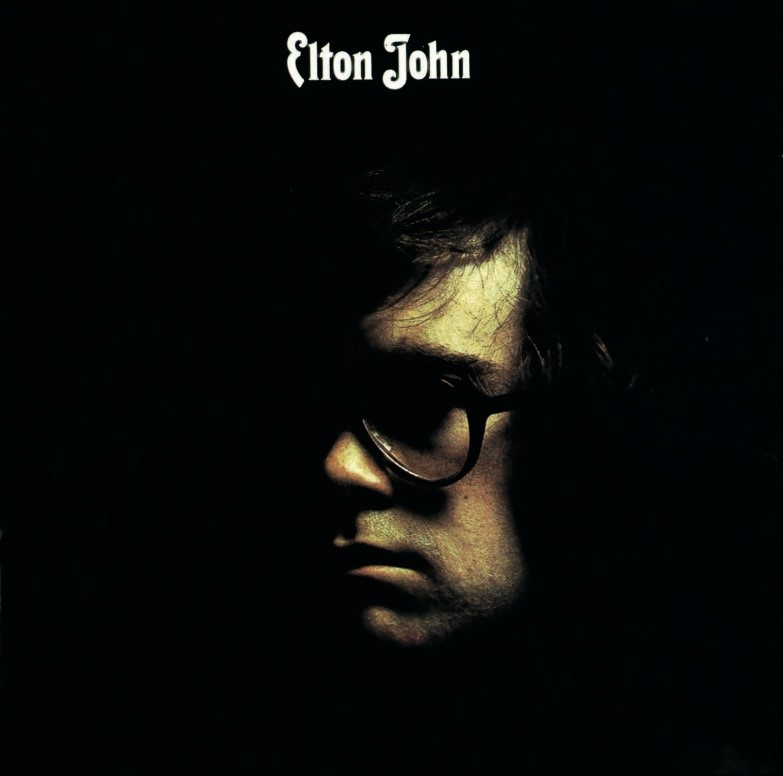
Elton John was recorded at Trident Studios which had a 16-track machine, Sound Techniques boards plus a Bechstein piano. In 1975 I visited Trident, and during 2016 I interviewed Paul Buckmaster and asked about the studio.
“I was an outside client of Trident Studios in London, sometimes coming in as an arranger or an arranger/producer. Playing on sessions on cello or as a keyboardist. Or all of it as production work.
“I had been doing a lot of pop work. I had already done ‘Space Oddity’ with David Bowie in 1969, and then a couple of albums with Elton John, his debut US LP, Tumbleweed Connection and the Friends soundtrack. The movie score. It was not just strings and horns. I was responsible for arranging the rhythm section on the Elton John album, most of Tumbleweed Connection, and most of Madman Across The Water.
“I had a room upstairs that was sound proofed. We had a huge living room below that could easily contain her Bechstein seven-foot grand piano. I had my tape recorder and my score paper. I didn’t have a piano. I wrote head arrangements to paper. I had to hear the orchestra in my mind to write it out.
“The Trident Studio in Soho was as an anechoic as it could get. When you shut the heavy doors of the studio your ears compressed. It was so dead in there. Every surface was totally absorbent. Not one reflective surface. Even the Steinway piano had a ‘car cover.’ And the studio floor was as dead as a doornail. And the sound which was great was a combination of the studio and the genius engineer, Robin Cable. He was a brilliant engineer. He was the guy who made drums sound as if they were bitchen’. It was saturation tape. What was there was a proper echo chamber and a plate. That was the only reverb that existed there.”
“Danny Hutton of Three Dog Night used to tout Elton in 1969, and earlier [he] was my driver,” record producer/songwriter Kim Fowley reminded me in a 2014 interview.
“I recorded him for Challenge and Invictor Records. I did a record by the Alpines with Danny Hutton. We co-wrote it and produced it and Ray Pohlman arranged. His mother was my landlady. Danny was, and is, cool. He told me about Elton being this great artist before I went to Europe for a music festival.
“In the late summer of 1970, I was living in Sweden. I was at an outdoor music festival and onstage with P.J. Proby. We followed the Move. Elton was there and playing piano with Blue Mink at the time. They followed us. Elton said to me, ‘I remember you when you were on Tops of the Pops, singing [a re-recording of Napoleon XIV’s] ‘They’re Coming to Take Me Away, Ha-Haa!’
“I was on that 1966 TV show in England, with Los Bravos and the Small Faces. I told Elton, at that 1970 festival in Sweden, ‘Pay attention to Danny Hutton when you come to town. He will steer you through L.A., and you will survive because of him.’
“I wished him luck. That was a Saturday night, and on the following Monday he left for Hollywood.
“Before his Troubadour shows, Elton did come up to Danny’s house in Laurel Canyon.”
The pianist and singer Elton John landed in Los Angeles in late August 1970, along with drummer Nigel Olsson and bassist Dee Murray. John’s songwriting partner Bernie Taupin was also there.
Before meeting Russ Regan, Elton immediately visited Danny Hutton at his home.
In Canyon of Dreams The Magic and the Music of Laurel Canyon, my 2009 book, Danny Hutton discussed his initial encounter with Reg Dwight pka Elton John.
“I first met him in 1969 in England when I was looking for songs for Three Dog Night. So, I phoned Dick James Music and Reg Dwight came up to my room and had some demos, which I still have. Reg or Elton, I really liked him. He was so sweet and sincere.
“I invited him to a small club where we are doing a show. The bouncer came up and said ‘Did you invite somebody because I don’t have him on the list.’ He’d come with Bernie Taupin. They were downstairs in the bar and I went down and he was humming something. I said, ‘You’re a great singer.’ And Elton said, ‘Nah. I’m a songwriter, not a singer.’ Maybe he was working me,” Danny suggested.
“Later on, I couldn’t get him on the list for our show at the Marquee Club so we brought him in as our roadie. Reg knew my resume. We were a hot band.
“I heard ‘Lady Samantha’ and brought it to the group. Our producer, Gabriel Mekler, had all three of us sing it and had Chuck [Negron] do the lead vocal. I liked the song. We also did ‘Your Song.’ And then I got a 3-page handwritten letter from Elton thanking me for helping him and Bernie out.
“Elton then phoned from London and said ‘I’m coming to town.’ He arrived and the first place I took him to eat was Billy James’ Black Rabbit Inn. Then I brought him up to the house. I phoned Van Dyke Parks to come up. Elton played the piano at my home on Lookout Mountain,” Hutton fondly remembered.
Russ Regan asked UNI/MCA label mate Neil Diamond to introduce Elton for his first performance at The Troubadour. Diamond had earlier heard about John from David Rosner who was working for Dick James Music.
The following day while Elton John was preparing for his life/career-changing opening at the Troubadour, Regan was overseeing a record company and just couldn’t attend his sound check at the club.
“And then the next day there was Elton’s sound check at the Troubadour and I was so busy at the label I couldn’t make it,” lamented Russ. “Rick Frio was working for me at MCA and I sent him. After the sound check, Rick calls me and says, ‘Russ, you’re not gonna believe it. We got one here. We got one!’”
Regan then went beyond the call of duty, and as Elton John’s advocate, telephoned everybody in his personal rolodex and invited them to the 300-seat Troubadour in West Hollywood on August 25, 1970, the first evening of a historic six-night engagement where John opened for David Ackles.
Russ was ringside for Elton’s launch, along with Danny Hutton, Ray Williams, Neil Diamond, Quincy Jones, Henry Mancini, Chris Darrow, Micky Dolenz, Graham Nash, David Crosby, Randy Newman, Don Henley, Van Dyke Parks, T-Bone Burnett, Nancy Retchin, Linda Ronstadt, John’s booking agent Jerry Heller at the Chartwell Agency, KPPC-FM program director Les Carter and his deejay wife Susan aka Outrageous Nevada, members of Bread, Roger Greenaway, Don Black, Ray Williams, music publisher David Rosner, art director David Larkham,
Odetta, photographers Ed Caraeff and Kurt Ingham, Jacoba Atlas of Circus magazine, the Beach Boys’ Mike Love, Elton John’s publicist Norman Winter of Totem Pole, GO! magazine columnist Rodney Bingenheimer, John Gibson of The Hollywood Reporter, and pop music critic Robert Hilburn from the Los Angeles Times, who subsequently penned the enthusiastic August 27, 1970 review with the headline “Elton John New Rock Talent,” positioning the star to the regional and national entertainment media.
Reporters from TIME and Newsweek were in attendance and hailed Elton John’s new stardom. Leon Russell, Denny Cordell, Blackie Dammett, Gordon Lightfoot, and Brian Wilson came other nights. I subsequently saw Elton at the Troubadour and met the manager, Robert Marchese.
In 1968 Robert produced the live Richard Pryor album at the club, which was issued on the Dove label, and won a Grammy. Photographer Henry Diltz took the LP cover. Marchese introduced me to Pryor and we saw Richard at Redd Foxx’s club. I still talk to Henry and Robert. Grateful.
This is the setlist for Elton’s Troubadour engagement beginning August 25, 1970: “Your Song,” “Bad Side of the Moon,” “Sixty Years On,” “I Need You To Turn To,” “Border Song,” “Country Comfort,” “Take Me To the Pilot,” “Honky Tonk Woman,” and a two- song medley of “Burn Down the Mission” and “Get Back.”
“I’m at The Troubadour opening,” reflected Hutton. “I’m with Brian Wilson and Van Dyke Parks, and Randy Newman came over to the table and said, ‘Hey, thank you for putting my kid through college with ‘Mama Told Me Not to Come.’”
“Danny Hutton brought Elton up to my house in Bel-Air in 1970,” Brian Wilson told me in an interview for his 2007 Pet Sounds tour program.
“Three Dog Night earlier did ‘Your Song,’ still my favorite of Elton’s, and he had just played The Troubadour. I heard he was nervous to meet me when they rang the intercom system. I was nervous to see him! So, I answered the buzzer and sang ‘It’s a little bit funny’ from ‘Your Song’ to them before they came up.”
After one Troubadour set, Elton and Bernie were invited to Leon Russell’s house.
“I was there at Elton John’s first show at the Troub,” recollected Micky Dolenz in a 2016 interview I conducted with Gary Strobl.
“[My wife] Samantha and I were invited over to a party at a little, oh, that’s a great little story. So, we hear about this new kid in town, Elton John from England and he’s getting a buzz, and he’s doing a show at the Troub. It’s his first show. Samantha and I were there and we knew his L.A. record company rep, I can’t remember the guy’s name, got a little house in Hollywood and invited us to the after party.
“It was quite a crowd of the typical Hollywood at the time. Elton John, of course, was not well known at the time. Well, Samantha had gone to England recently to see family, I guess, and had come back with cool clothes for me from Carnaby Street, or wherever, new, hip, cool London fashion."
"And one of the things was a T-shirt, an Andy Warhol T-shirt with all the Marilyn Monroe. He did that poster or a painting of Marilyn Monroe in all different colors. Well, I guess somebody got the rights to do that as a T-shirt. So, it was a very cool T-shirt of that Andy Warhol, I guess it was multiple Marilyn images. And I wore that T-shirt. We see the show.
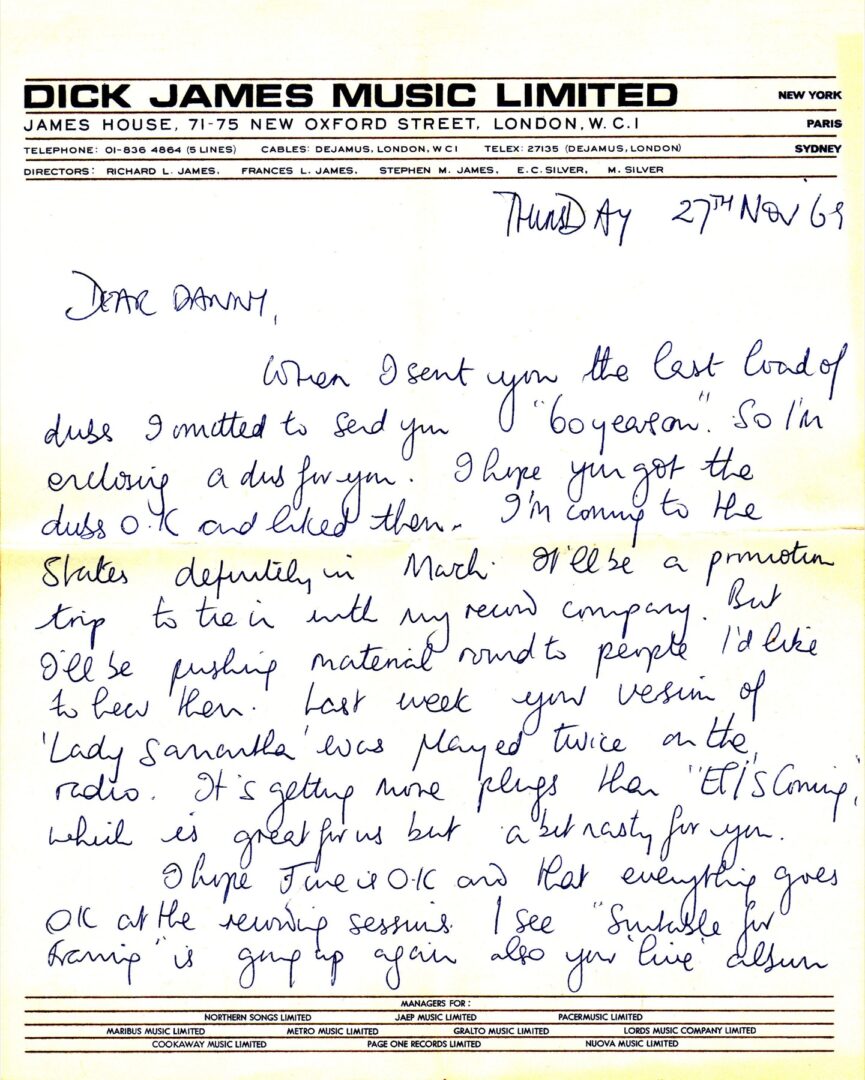
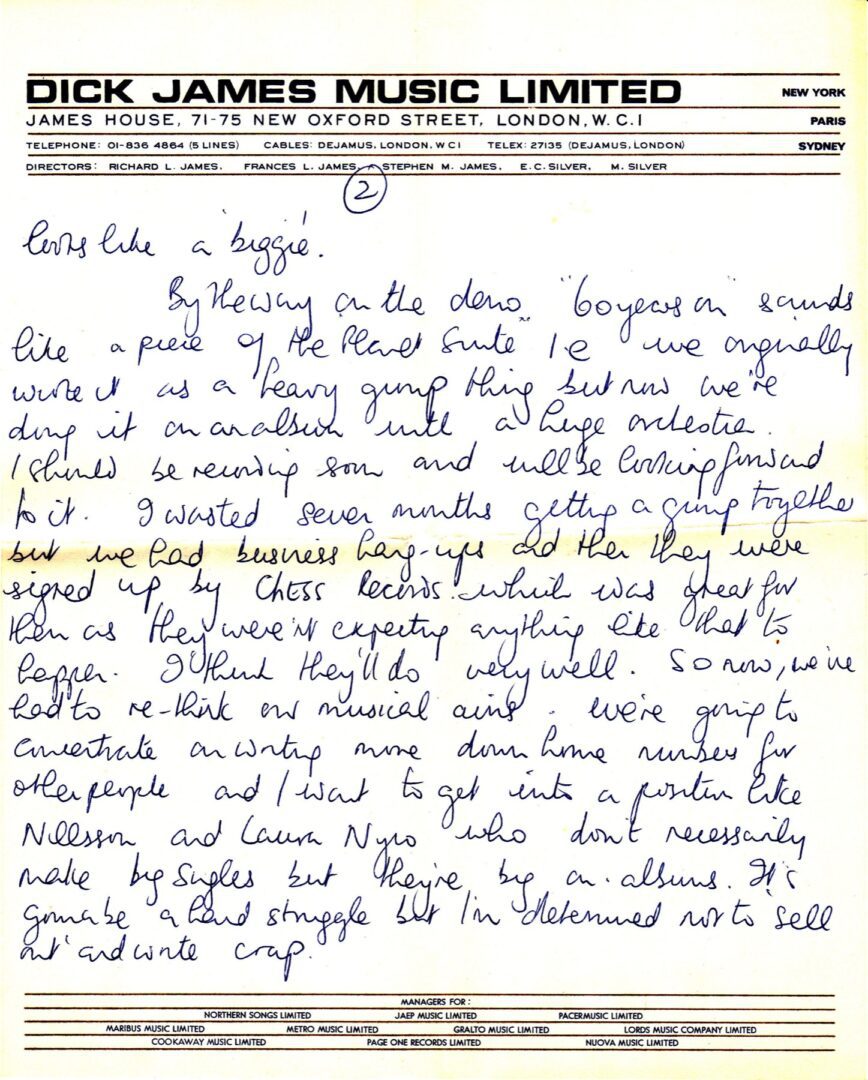
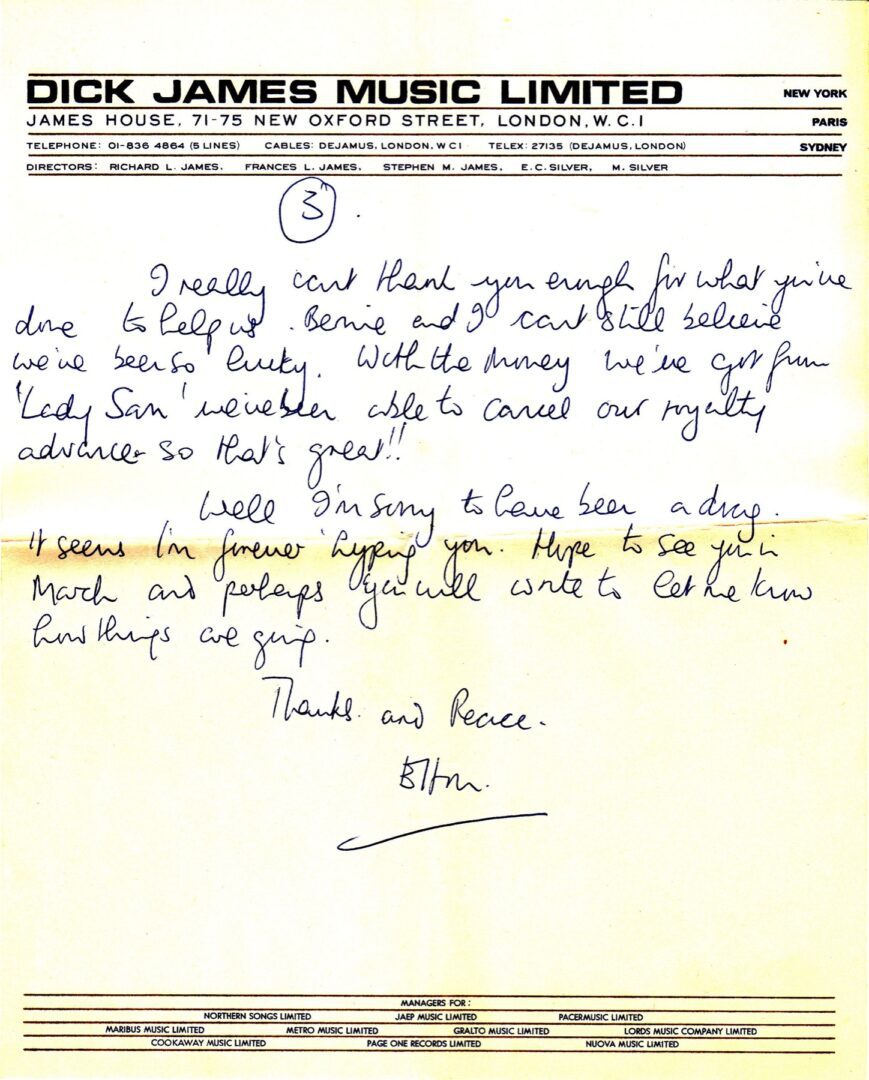
“I remember Elton only had three pieces with him at the time. Then we go and we drive over to the after party. We walk in and everybody’s ‘Hello, hello, hello.’ And I remember actually quite clearly walking into the kitchen, and this is like a really kind of typical three-room Hollywood, stucco little house on Fairfax Ave. And I remember walking around saying hi to everybody and I walked in the kitchen and there’s Elton John. He turns around. He has on the same T-shirt. And he looks at me and he goes, ‘Oh, fuck!’ (laughing) Like two women showing up with the same dress.
“I didn’t give a shit. I laughed. I was like, ‘Oh, wow, man, cool shirt!’ But I think he was really, he was like, must have been so pissed off. Samantha laughed. That was fun.”
“This Elton at The Troubadour was something euphoric. I was on a high for three days,” confessed Russ Regan. “I couldn’t believe I was so lucky to have an artist like Elton John. It wasn’t a feeling like when Brian [Wilson] would play me his singles before [‘Good Vibrations’] they were released. It was beyond that.”
“In September 1971 I went to see Elton play at the Greek Theatre,” Danny Hutton happily reminisced. “After the show, he’s kind of short with me and I’m a little bummed out and I’m with a guy from grammar school. I went home and there’s all these cars parked near me. Elton tossed a surprise party. It was very cool. So, Elton John did not forget me.”
Last decade I spoke with Russ Regan about Elton John’s Troubadour booking.
“I went out of my mind. I couldn’t believe I was so lucky to have an artist like Elton John. It wasn’t a feeling like when Brian (Wilson) would play me his records before they were released. It was beyond that. Brian playing me his records in advance was a great thrill. And a wonderful experience. But this was something euphoric. That evening was totally euphoric. I was so high naturally that I didn't come down for three days.
“I met Elton after the first show along with Bernie and the band. I went every night. I called everybody in town. Robert Hilburn’s review of the show in The Los Angeles Times was incredible. It happened at a time where a great review in a paper could help radio exposure. I didn’t realize Elton John was a superstar until the Troubadour.
“Don’t forget we went from the Troubadour on Santa Monica Boulevard to the San Francisco Troubadour North that Doug Weston also had. And Elton didn’t do that well in San Francisco. He did all right but it wasn’t the same magic.
“Here’s the bad news. We then went to New York and they put us in the Playboy Club for a luncheon for everybody. By the time Elton went on, half the people had left. And Elton was so disheartened that his performance was not that great. OK. He didn’t do very well at the Playboy Club, and I don’t blame him.
“So, the next day we’re on a train going to Philadelphia to play at the Electric Factory. We get there and check into the Marriott Hotel and all the radio people are there. Kal Rudman of the music industry trade magazine Friday Morning Quarterback came up. “
“I had picked up the phone in advance for my people. I’m having them up to a big suite at the Marriott, people are coming by, and I’m ordering 20 club sandwiches at a time. ’Cause club sandwiches are cut up in fours. Right? I’m having drinks brought up.
“So, all of a sudden, Elton’s room is next door to my suite, I get a call from one of MCA President Mike Maitland’s assistants, who runs me down and says, ‘Russ, you’ve gone out of your mind. We all think you’ve lost your mind with this Brit that you’re promoting.’ He called him ‘a Brit.’ ‘What are you talking about?’ ‘You’re out there spending all this money and we’ve sold about 3,000 records. It hasn’t translated into sales. We aren’t selling shit and you’re spending this money!’
“I said to him, ‘It’s just a matter of time before he pops loose. This guy is gonna be big!’ So, he says, ‘Well, you know what they call your big-time superstar?’ ‘What are they calling him?’ ‘They’re calling him Regan’s Folly.’
“By the time Elton got to Philadelphia he was Regan’s Folly. I called the guy every name in the book and hung up on him. I walked next door and went to Elton and told him what had just happened. And Elton looked at me. I will never forget these words, ‘Russ, tonight I’m gonna burn the city of Philadelphia down.’
“He had a song called ‘Burn Down the Mission,’ right? So, we get to the Electric Factory. He does his set and the last song was ‘Burn Down the Mission.’ And he did it for 20 minutes. He was under and on top of the piano. He was out in the audience. He was everywhere. People were going out of their minds. I said, ‘This is it.’ And we finally got out of there about midnight and called room service for a couple of banana splits.
“I got to bed at 3:00 in the morning. I was awakened by Sam Passamano, who was the MCA branch manager.
“He called me at 10:30 and said, ‘Russ, I have to wake you up and I know you were up all night. But I have to give you some news. I just had to order 5,000 Elton John albums. Something happened last night.’ ‘Thank you very much,’ and I went back to sleep.
“Two hours later Sam calls me again; he woke me up again. ‘I know you’re still sleeping and not checking out until 2:00 p.m. But I had to order another 5,000 albums.’
“I then called the MCA office and asked for the Maitland’s assistant and he picked up. I said, ‘This is what just happened. Sam Passamano has ordered 10,000 Elton John albums and you can go fuck yourself and tell everybody they can go fuck themselves ’cause Regan’s Folly is coming home!’ And I hung up.
“Then what happened was Elton John took off. And don’t forget we hadn’t put out the single yet. When I came back, we released ‘Your Song’ as the single. I loved that song.
“Now get this. I was being second-guessed. Everybody was going with ‘Take Me To The Pilot.’ I loved that too, but ‘Your Song’ is the hit. So, guess what, that 45RPM, if you can ever find one, ‘Your Song’ as the A-side and ‘Take Me To The Pilot’ as the B-side. ‘Cause everybody thought I was crazy putting out ‘Your Song.’ ‘They’re gonna flip it!’ And they never did because ‘Your Song’ was a smash.
“I knew the combination of (producer) Gus Dudgeon and (arranger) Paul Buckmaster was fantastic. There were always arrangers on the hits I promoted in the late 1950s and well into the ‘60s. And, Bernie Taupin’s lyrics, if you analyze them, were incredible. He was way ahead of everybody. For a 21year old kid at the time he was amazingly talented. I also knew FM radio would embrace Elton John. Absolutely.
“I also helped arrange the 11-7-70 Elton John syndicated FM radio broadcast that was done out of New York. Phil Ramone’s studio. I gave it the green light to do it and that’s why it happened. It was later released as an LP. I then got accused of putting out too much product. I said, ‘Look, with this kind of artist you can never put out too much product.’ [In 2017 the album was reissued with bonus tracks from Universal Enterprises Inc.]
“I’m at UNI/MCA until the summer 1972, including Tumbleweed Connection, Madman Across the Water, and the single of ‘Rocket Man.’”
In the seventies I saw Elton at Weston’s Troubadour. I caught his June 21, 1975 UK Wembley stadium concert with the Eagles and Beach Boys where he unveiled Captain Fantastic and the Brown Dirt Cowboy. I was invited to Elton’s October 25, 1975 Dodger Stadium show in Los Angeles.
While writing for Melody Maker in 1975, Elton and I chatted inside Cherokee Studios on Fairfax Avenue at the Rocket Records release party of Neil Sedaka’s The Hungry Years. It was obvious EJ was a record collector. He cited British singer Julie Grant and singles from the Immediate Records label.
Later, as MCA Records West Coast Director of A&R during 1977-1978, I encountered Elton again. We discussed Tamla-Motown, Billy Stewart, Jackie Wilson, the Chi-Lites, Laura Nyro and the Hollies. Elton confirmed he played piano on the Hollies’ session for “He Ain’t Heavy, He’s My Brother,” a tune Tony Hicks of the band found on Denmark Street.
On October 14, 1978, Elton gave a solo set recital for MCA executives and staff in Los Angeles at the Century Plaza Hotel. It was the occasion to premiere his A Single Man album. John chided the label, and did some selections from A Single Man not usually found in his 1978 live repertoire. The rendition of “Sixty Years On” was stunning.
During 1976-1986, I would see Elton occasionally at Gaylord Indian Restaurant at 50 North La Cienega Blvd. on Restaurant Row near Beverly Hills. Gaylord became a destination spot for British transplants desperately needing their weekly Indian meal.
In 1980, Russ Regan became PolyGram Records' General Manager of West Coast Operations. He was the music consultant on the Flashdance soundtrack that sold 14 million copies. Regan was also Music Supervisor for Breakin, A Chorus Line, This is Spinal Tap, Karate Kid, and Chariots of Fire. In 1986 Russ was hired as President of Motown’s Creative Division. He worked on Smokey Robinson's comeback album, One Heartbeat, which went platinum and spawned two top 10 singles. Regan remained with Motown until the company was sold in 1988.
“Sometimes I fill a void out there,” underlined Russ in a 2016 interview.
“When I signed Elton John, or Olivia-Newton John my basic and number one philosophy in A&R, then and now is that I look for something that no one else is doing at the moment. A song is like movie. But a movie-without a great script you can’t get a great movie. I don’t give a damn how good your actors are. It’s the same thing with a singer. If a singer doesn’t have a great song."
"It’s always about the song. It goes back to Brian Wilson when I named the Beach Boys. I met him and said this kid is unreal for age 19. And Bernie Taupin is a great story teller/lyricist, and he was about 21. All these guys wrote great lyrics and great songs. Some great writers that have come into my life,” Russ summarized.
I do wish that in the Elton John Rocketman biopic and Elton’s autobiography, Me, Russ Regan was given some sort of acknowledgement.
If not for song sniffer Russ, we may have never heard the delightful early career Elton John albums in the United States.
When Russ Regan passed away in May 2018 at age 89, Elton John on twitter offered this condolence. “RIP Russ Regan. Thank you for believing in me and helping launch my career.” Elton John (@eltonofficial) May 29, 2018.
(Harvey Kubernik is the author of 20 books, including 2009’s Canyon Of Dreams: The Magic And The Music Of Laurel Canyon, 2014’s Turn Up The Radio! Rock, Pop and Roll In Los Angeles 1956-1972, 2015's Every Body Knows: Leonard Cohen, 2016's Heart of Gold Neil Young and 2017's 1967: A Complete Rock Music History of the Summer of Love. Sterling/Barnes and Noble in 2018 published Harvey and Kenneth Kubernik’s The Story Of The Band: From Big Pink To The Last Waltz. In 2021 the duo wrote Jimi Hendrix: Voodoo Child for Sterling/Barnes and Noble.
Otherworld Cottage Industries in 2020 published Harvey’s Docs That Rock, Music That Matters. His Screen Gems: (Pop Music Documentaries and Rock ‘n’ Roll TV Scenes) is scheduled for 2025 publication.
Harvey wrote the liner notes to CD re-releases of Carole King’s Tapestry, The Essential Carole King, Allen Ginsberg’s Kaddish, Elvis Presley The ’68 Comeback Special, The Ramones’ End of the Century and Big Brother & the Holding Company Captured Live at The Monterey International Pop Festival.
During 2006 Kubernik appeared at the special hearings by The Library of Congress in Hollywood, California, discussing archiving practices and audiotape preservation. In 2017 he lectured at the Rock and Roll Hall of Fame in Cleveland, Ohio, in their Distinguished Speakers Series. Amidst 2023, Harvey spoke at The Grammy Museum in Los Angeles discussing director Martin Scorsese's The Last Waltz music documentary.
Kubernik was interviewed for the August 2025 documentary, The Sound of Protest now being broadcast on the TVOD Apple TV broadcasting service. https://tv.apple.com › us › movie › the-sound-of-protest. Director Siobhan Logue’s endeavor features Smokey Robinson, Hozier, Skin (Skunk Anansie), Two-Tone's Jerry Dammers, Angélique Kidjo, Nina Simone, Holly Johnson, David McAlmont, Rhiannon Giddens, and more.
Harvey is also an interview subject with Iggy Pop, Bruce Johnston, Johnny Echols, the Bangles' Susanna Hoffs and Victoria Peterson, and the founding members of the Seeds in director Neil Norman’s documentary The Seeds - The Seeds: Pushin' Too Hard due in November 2025, a DVD with bonus footage is scheduled for release via the GNP Crescendo Company.
The New York City Department of Education is scheduled to publish in 2025 the social studies textbook Hidden Voices: Jewish Americans in United States History. Kubernik’s 1976 interview with music promoter Bill Graham on the Best Classic Bands website Bill Graham Interview on the Rock ’n’ Roll Revolution, 1976, is included).
Album art courtesy of Universal Music Enterprises

